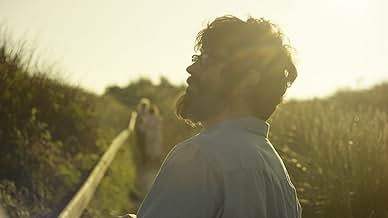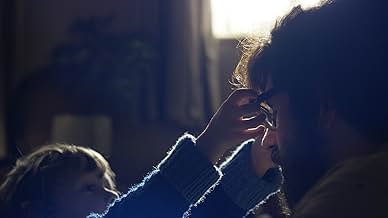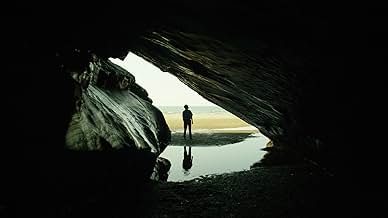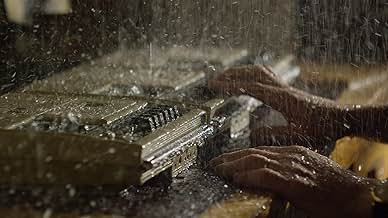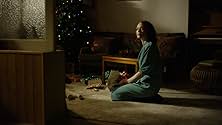Notes on Blindness
- 2016
- 1 घं 30 मि
अपनी भाषा में प्लॉट जोड़ेंIn the summer of 1983, just days before the birth of his first son, writer and theologian John Hull went blind. In order to make sense of the upheaval in his life, he began keeping a diary o... सभी पढ़ेंIn the summer of 1983, just days before the birth of his first son, writer and theologian John Hull went blind. In order to make sense of the upheaval in his life, he began keeping a diary on audiocassette. Upon their publication in 1990, Oliver Sacks described the work as 'the m... सभी पढ़ेंIn the summer of 1983, just days before the birth of his first son, writer and theologian John Hull went blind. In order to make sense of the upheaval in his life, he began keeping a diary on audiocassette. Upon their publication in 1990, Oliver Sacks described the work as 'the most extraordinary, precise, deep and beautiful account of blindness I have ever read. It i... सभी पढ़ें
- निर्देशक
- लेखक
- स्टार
- 3 BAFTA अवार्ड के लिए नामांकित
- 4 जीत और कुल 15 नामांकन
- Self
- (वॉइस)
- Self
- (वॉइस)
- John Hull
- (as Dan Skinner)
- Thomas
- (as Sidney Nicholas Warbrick)
- Thomas
- (as Stanley John Warbrick)
फ़ीचर्ड समीक्षाएं
I was particularly interested in this documentary as I recently met 2 incredible blind musicians and was curious to learn more about blindness. However this is not really a documentary about blindness but more about how this guy personally reacts to his situation. There were some very captivating moments though.
A theology academic named John Hull goes blind due to an illness and has to learn how to adapt to his new life.
The film relates the experiences of John Hull, a writer and theologian who found himself losing his sight just before the birth of his first child. To make sense of his experiences he taped his thoughts - first, reflections on the more practical part of his experiences. As someone who needed to read for his work, for example, he went searching for audiobooks of the academic texts he needed. He discovered that it was assumed that 'blind people don't read big books'; so with an army of friends and families, a library of his books was committed to tape.
As time passes he discovers he needs to understand the condition itself, not just the practicalities of it; he'd found himself so busy preparing for and learning to live with blindness that it prevented him for understanding it. He had to learn to think about his condition: 'If I didn't understand, it would defeat me'.
So begins a series of profound reflections which, as a person who has lived with chronic pain for 20 years, I find very resonant and truthful. The person offering a miracle cure (hypnotherapy) who can't accept John's insistence that his eyes won't just grow back; the people who say he doesn't want his sight back because he seems to have adjusted to it. If we complain about our condition, we're classified as defeatist moaners; if we accept it (as we have to), we've given up (especially as Christians). Onlookers seem only to have categories for the heroic overcomer or pathetic victim; there's no room for someone to keep on, keeping on.
The reflection that 'everyday I wake up, I've lost my sight again'; a painfully truthful expression of the reality that every day I wake up, I'm in pain again.
The reflection on why bad things happen to Christians - 'why shouldn't they happen to me?'; a line I've used myself. This struggle seems to be a bigger one for the people around us, then for the sufferers ourselves. As he says 'I don't regard faith as a shield against the normal ups and downs of life'.
His child screams; they rush to discover it's a finger trapped in a door, but even so he's impotent. "The discovery that you're useless is not a nice discovery for a father to make'; how true. I lie some days in pain, aware of my enforced physical absence from my children and my apparent uselessness as a result.
There are many more moments to reflect on, but the surreal and moving conclusion is the most weighty, as John's dreams are shown melting in to on-screen reality. He ends at a point where blindness (chronic illness) either enables in the sufferer some kind of rebirth, or it destroys you. As he says this, him and his family are soaked in rain, a symbolic baptism and regeneration. It's truthful, healing and challenging all at once.
A unique and wonderful film, to be lived with and drunk deep from - especially for chronic illness sufferers and those who travel with them.
क्या आपको पता है
- ट्रिवियाWhen it was shown on British TV, the film was made available with two soundtracks. The first was a "heightened soundtrack" produced by one of Europe's leading sound designers, Joakim Sundström, who created a rich, immersive soundtrack calibrated specifically for blind audiences, using enhanced sound design and additional audio from the characters to guide the audience through the story. The second was a more regular audio described version read by Stephen Mangan.
- भाव
John M. Hull: What I remember about you most vividly in those years was your amazing practicality. You never expressed regrets. You just got on with the next thing, step by step. The way you did that, I always thought was incredible.
- कनेक्शनRemake of Notes on Blindness (2014)
टॉप पसंद
- How long is Notes on Blindness?Alexa द्वारा संचालित
विवरण
बॉक्स ऑफ़िस
- दुनिया भर में सकल
- $1,04,214
- चलने की अवधि1 घंटा 30 मिनट
- रंग
- ध्वनि मिश्रण
- पक्ष अनुपात
- 2.35 : 1
इस पेज में योगदान दें




